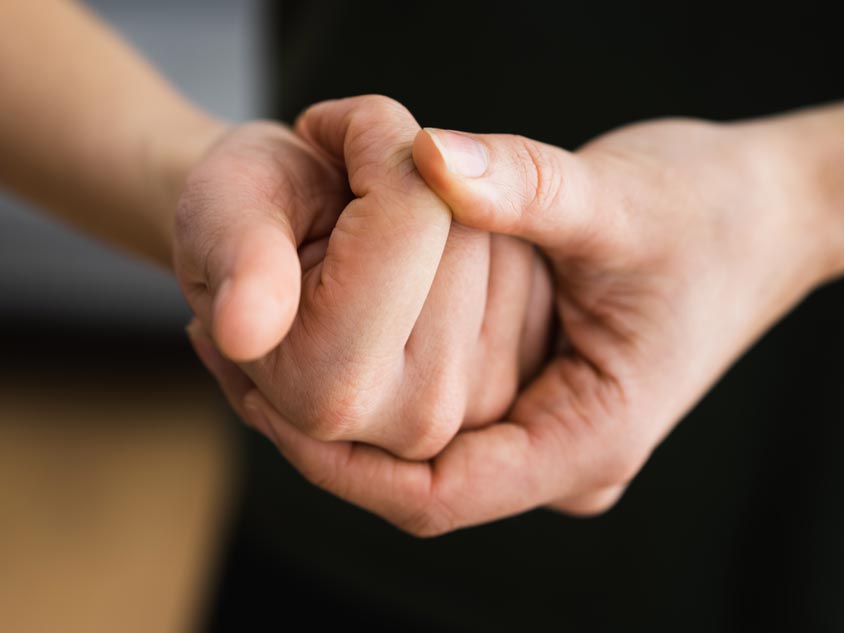Exploring the serious side of noisy joints

Decoding Joint Noises
Just like the famous breakfast cereal, our joints are capable of making all kinds of distinctive snap, crackle and popping noises.
As a party trick, this array of weird and wonderful sounds has the potential to keep friends amused – well, possibly for a short time.
But are they also a sign of some underlying health issue?
While usually harmless if no other symptoms exist, it is possible they are an indication of something more serious.
There is no blanket diagnosis because it depends on the sound, where the noise is occurring and if there is any associated pain.
In some cases the noises are the result of advancing years and the onset of osteoarthritis. In others it might be inflamed tendons or serious joint problems.
The medical term for these noises is crepitus. Let's take a look at the sounds, the causes and treatment options if there is a medical condition.
Is knuckle cracking bad for you?
We’ve all come across someone capable of cringe-inducing knuckle cracking.
Knuckles are the easiest joints to pop and is caused when sharp pressure is applied to the fingers.
This results in a sudden release of dissolved gases from the synovial fluid, which lubricates the joints, and makes the popping sound.
Joints can only be cracked again when the gases have dissolved back into the fluid, which explains why a repeat performance isn’t possible immediately afterwards.
Although generally harmless, studies have found that repetitive knuckle cracking can damage soft tissue surrounding the joint.
This can lead to hand swelling and a weakness in grip strength.
Similar joints in other parts of the body, such as the knee, ankle, back and neck, can also pop when a small amount of force is suddenly applied.
DID YOU KNOW: Cracking your own neck can be deadly. You can create a small tear in the lining of the vertebral artery which could eventually lead to a stroke.
Trouble with tendons
Tendons and ligaments are also capable of making some rather unsettling noises.
The loudest and most painful is caused when the Achilles tendon snaps. This severe injury releases enormous tension and creates a sound like a gun being fired.
Less serious is the distinctive grinding noise made when a tendon inflamed through repetitive movement rubs over bone. It’s a condition sometimes found in the ankles of long distance runners and in the forearms of kayaking enthusiasts.
Rather than moving smoothly through its sheath, the swollen tendon grates along the bone.
Knees also produce their own unnerving sounds as a result of a slight misalignment or the movement of different ligaments snapping back into place after a sudden movement.
More worrying is a low-pitched clunking noise which can indicate a serious joint problem. Such a sound coming from a hip, for example, can be caused by a partial dislocation which, if not treated early, can result in a life-long disability.
The pain of ageing joints
A fairly common cause of creaking and grinding is osteoarthritis when cartilage becomes worn and pieces of bone rub together.
This is accompanied by pain and stiffness.
Age and genetics play a major role in the onset of the disease.
People often start noticing signs of the condition in middle age and it’s common by the time you reach 70.
While little can be done to correct the damage, you can take steps to limit further deterioration and ease the symptoms.
Keeping your weight under control is a priority because extra pressure on hip, knee, ankle and foot joints creates more wear and tear.
It’s also important to keep active. Cartilage has a poor supply of blood and relies on movement to keep it sustained with oxygen and nutrients.
However, avoid impact sports, which can aggravate symptoms, in favour of activities such as swimming, walking and Pilates.
Exercise has multiple benefits as it helps keep the kilos off, assists with flexibility in the joints and decreases the pain.
Sufferers should avoid the over-use of anti-inflammatory medication for pain relief as osteoarthritis only involves low-grade inflammation.
Anti-inflammatories can cause various side effects and are best taken in consultation with your doctor.
DID YOU KNOW: The most common noise in feet is clicking in the toes caused by Morton’s Neuroma. This condition is linked to running or walking which causes nerves to swell in the ball of the foot.
The benefits of eating well
Eating a healthy, balanced diet is important as it helps maintain joint and overall movement.
Buy foods rich in omega-3 fatty acids, such as salmon, tuna, walnuts and olive oil, as they can ease joint pain and inflammation.
Other beneficial foods include fruits and vegetables high in vitamins C and E and antioxidants.
Good sources of vitamin C include oranges, strawberries, kiwi fruit, peppers, cauliflower, parsley, broccoli and kale.
Excellent sources of vitamin E include spinach, kale, almonds and tropical fruits.